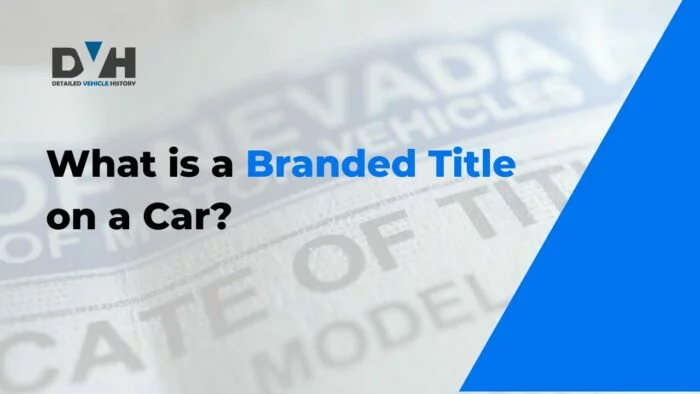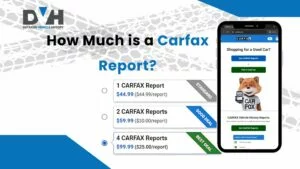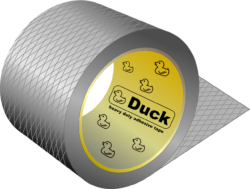A branded title on a vehicle signifies a significant event in the car history, such as severe damage or theft. Many car buyers are wary of branded titles, associating them with hidden problems and decreased value.
Knowing what a branded title means and its implications can help you make informed decisions when buying or selling a vehicle. This article discusses what branded titles are, along with their advantages and drawbacks.
What is a Branded Title?
A branded title is a title that shows that a vehicle was once declared a total loss due to severe damage in the past. This damage could have come from a flood damage, an accident, or theft but reduced the vehicle’s reliability, safety, and even value.
Most of the time, vehicles, including motorcycles, with branded titles are often too expensive to fix and are declared losses by insurance companies or government agencies.
If these vehicles are repaired and brought back to the road, they often come at 20 to 40% less than the same models with clean titles would be sold for, and that’s not even the only downside with these cars.
READ ALSO: What Does a Clean Title Mean on Vehicles?
Pros and Cons of Branded Titles
Since branded titles suggest that cars have experienced serious damage in the past, they are most often classified as bad. However, it usually means they come at cheaper rates.
While a branded title vehicle can sometimes offer cost savings, it also comes with several potential downsides that you should carefully consider.
Pros of Buying a Branded Title Car
Although everything about the branded title seems bad, there is also a good side of it. These include:
- Cars with branded titles are cheaper: Since branded titles signify damage and perhaps loss of integrity and reliability, many car buyers are wary of buying cars with one. Thus, their values are reduced, sometimes by thousands of dollars, just to attract buyers.
- Branded title cars are safe: One valid point users tend to miss is that vehicles with branded titles are not substandard. Most of these cars are high-quality, professionally restored vehicles that are as safe as clean vehicles.
- Some branded vehicles are easy to repair: Branded titles are usually assigned to vehicles as long as the vehicle was involved in an incident that required insurance involvement. This means some needed repairs may not be significant and can be fixed easily. For example, some collisions only require body work to return to shape, but these cars may get branded titles. The same applies to flood-damaged cars. They may have only been exposed to a few inches of water. Stolen vehicles sometimes have little or no damage but will have branded titles.
- You can end up with a newer vehicle: By purchasing a branded title car, you may end up with a new vehicle and features you wouldn’t have been able to afford otherwise.
Cons of Buying a Branded Title Car
The downsides include:
- Lower resale value: As earlier mentioned, vehicles with branded titles may lose up to 40% of their value. So if you end up purchasing one, you shouldn’t expect to have good returns if you plan on selling. The resale value would be decreased significantly by the branded title.
- Difficulty in obtaining financing: Many lenders are only interested in financing vehicles with clean titles. Branded titles pose too much of a risk for them, so it’s usually difficult to find one interested in financing a branded car. If you do find one, their interest rates tend to be over the roof.
- Challenges in finding insurance coverage: Similar to financing, insurance companies too do not want to insure cars with title brand records. So you would have to search around for coverage.
- Potential hidden damage: Sometimes, even though professionals may have fixed these cars and even passed the government inspections, mechanical issues may be lurking. Unless the damage sustained wasn’t significant, you might be taking a gamble with a branded title car.
READ ALSO: How To Get a Salvage Title Check Report for Vehicles
What Causes a Branded Title?
There are several reasons why a vehicle may end up with a branded title. The most common are:
Severe Accidents and Damage
One of the most common reasons for a branded car title is severe accident damage. When a vehicle is involved in a major collision, the cost to repair it can sometimes exceed its market value.
In such cases, insurance companies declare the car a total loss, leading to a salvage title brand being issued. The salvage vehicle is often sold at auction, repaired, and resold with a salvage or rebuilt title indicating its significant damage history.
Flood Damage
Water damage can destroy a car’s electrical system, interior, and engine. It can also cause mildew and mold all over the vehicle’s interior, leaving a moldy smell behind.
The damage caused to the engines can also be difficult to repair, leading to the vehicle getting a flood-damaged title. Before buying a used car, check the flood damage by VIN to secure your investment.
Theft Recovery
A vehicle that has been stolen and then recovered may also receive a branded title. Often, stolen vehicles lose valuable parts and may even sustain severe damage during the theft or recovery.
It is not uncommon for vehicles with theft records and branded titles to remain in good shape, maybe because they were recovered early or the thief wanted to sell or use the car. This doesn’t mean you should buy such vehicles carelessly.
Verify that the vehicle was recovered by the police before buying; otherwise, you could find yourself losing the car and your money to fraudsters.
Lemon Law Buybacks
In many states, there is the lemon law buyback process that requires a manufacturer to buy back a vehicle if it has been deemed a lemon due to specified defects. These vehicles are usually found with recurring, unfixable issues that affect their safety, value, or utility.
When this happens, manufacturers take back these vehicles for repairs but return them to the market for sale with branded titles.
Odometer Rollback
Odometer rollback involves tampering with a vehicle’s odometer to display a lower mileage than the actual number of miles driven.
This fraudulent practice is usually done to increase the value of a vehicle and make it seem newer. When discovered, it results in a branded title to alert buyers of the tampering.
The list doesn’t end here. There are several other reasons why a vehicle may end up with title brand records. Some of these are:
- Fire damage affecting major vehicle parts and equipment
- Hail damage
- Auction records, and more.
Be sure to keep an eye out for signs of these damages as they can tell you if a vehicle has title brand records and hidden damages.
READ ALSO: What Does an Exempt Mileage Title Mean for a Car?
Does a Branded Title Affect Insurance?
Yes, a branded vehicle title can significantly affect insurance. Many insurance companies are hesitant to provide full coverage for vehicles with branded titles due to the increased risk and potential for hidden damage.
This often results in higher premiums and limited coverage options, such as liability-only policies. Note that it’s essential to disclose the title status to your insurer to avoid future issues.
How to Find insurance for a Branded Title Car
Although finding insurance for a used vehicle with title brand records is difficult, it’s not impossible. You can find one with diligent research by doing the following:
- Carry out intensive research and contact multiple insurance companies.
- Compare quotes and coverage options.
- Contact insurance brokers working with several companies. They may be able to find one for you.
- Speak with your dealer. They may be able to help you get coverage.
To check a used car for any reported insurance records and past events like lien check, theft, and mileage, use our car insurance by VIN check tool.
How to Check if a Car Has a Branded Title
Checking for title brand records is easy. All you need to do is follow these steps:
Step 1: Find the VIN
The first step to finding the history and title brand records of any vehicle is with a VIN check. A VIN check allows access to all vehicle history records and specifications.
To find the VIN, you can check the:
- Dashboard of the vehicle
- Driver’s side door jamb
- Engine block
- Vehicle registration documents
The Vehicle Identification Number (VIN) is usually 17 characters but can be 5 to 13 characters in older classic vehicles. With the VIN, you can view all vehicle records, including accident records, title brand records, theft records, auction records, and more.
Step 2: Use a title check tool
There are several free title check by VIN tools available for checking for title brand records on used cars. Several tools like Carfax are paid tools, but our free check tool does the work at no cost. You can find out if your vehicle has a branded title by simply entering the VIN into the form on this page.
Another good option is the National Motor Vehicle Title Information System (NMVTIS).
Step 3: Review the report
After filling out the form and submitting it, you will instantly find out if a vehicle has been stolen or declared a total loss in the past. Our tool can also show the:
- Date of issue
- Location
- Source
- Details.
Don’t leave the safety of a vehicle to chance. Make sure to get a check before making any purchase.
Tips for Buying a Car with a Branded Title
If you are knowledgeable about cars and need something really affordable, a car with a branded title can be an excellent buy. However, you need to be prepared for risks.
Some important tips that can help you are:
- Find out why the car has a branded title (accident, flood, theft, etc.).
- Obtain a detailed vehicle history report to learn about the car’s past.
- Get an inspection. Hire a mechanic to check for hidden damage or issues.
- Contact insurers to discuss coverage options and costs.
- Branded title cars usually have lower resale values. So you need to keep this in mind.
- Negotiate properly. Use the branded title as leverage to get a better deal.
- Ensure repairs were done by a reputable shop with original parts.
- Also, check for regulations regarding branded titles in your state.
Legal and Financial Implications of a Branded Title
Understanding the broader implications of owning a vehicle with a branded title is crucial. Here are some key legal and financial considerations:
Legal Disclosure Requirements
- Mandatory disclosure: When selling a branded title car, you are legally required to disclose its status to potential buyers. Failure to do so can result in legal consequences, including fines and lawsuits.
- Transparency: Properly disclosing the branded title helps maintain transparency and trust in the transaction, protecting both the buyer and the seller from future disputes.
Potential Impact on Loan Approval
- Financing challenges: Obtaining a loan for a branded title vehicle can be difficult. Many banks and lending institutions are hesitant to finance these cars due to their perceived higher risk.
- Higher interest rates: If you do find a lender willing to provide a loan, expect higher interest rates and less favorable terms compared to loans for clean title vehicles. This can increase the overall cost of ownership.
Long-term Financial Considerations
- Lower resale value: Branded title cars typically have a lower market value, making it harder to recoup your investment when you decide to sell. This depreciation can be a significant financial hit.
- Increased insurance costs: Insuring a branded title car often comes with higher premiums and limited coverage options. Many insurers only offer liability coverage, increasing your financial risk.
- Potential for hidden costs: Branded title vehicles may have unresolved damage from previous incidents. These hidden issues can lead to unexpected repair costs and ongoing maintenance expenses.
- Warranty limitations: Manufacturer warranties are usually voided for branded title cars, meaning you will be responsible for all repair and maintenance costs out of pocket.
- Depreciation: Branded title vehicles tend to depreciate faster than those with clean titles, further diminishing their long-term financial value.
Understanding these legal and financial implications can help you make a more informed decision when considering the purchase of a branded title vehicle.
What's Next?
A branded title on a car signifies significant past damage or issues that can impact its resale value, financing, and insurance. While these vehicles come with certain risks, they can also offer cost savings if approached carefully.
With our detailed guide and title brand check tool, anyone can now secure great deals and avoid common pitfalls, leading to smarter and more satisfying car ownership experiences. Try our VIN title check tool for free today.








